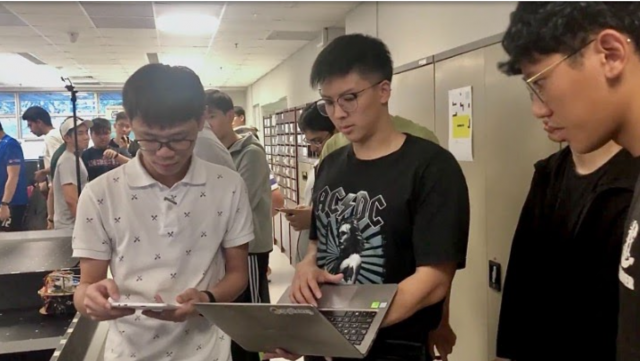Shortly after Ms Feng Cheng Xuan, 23, graduated from Nanyang Technological University (NTU) with a Bachelor’s degree in Computer Science in February, she has secured a job at Avanade, a company founded by technology giants Microsoft and Accenture.

Even before her graduation, Ms Feng was receiving messages from campus recruiters on platforms such as LinkedIn, inviting her to attend online interviews for various positions in the technology industry.
She’s not alone. The demand for computer science graduates has been on the rise in recent years, as seen from the jump in the starting salaries of computer science graduates from both the National University of Singapore (NUS) and Nanyang Technological University.
According to the Graduate Employment Survey by the Ministry of Education, computer science graduates from NUS saw a 47.4 per cent increase in their gross monthly mean salary from $3,890 in 2015 to $5,735 in 2020.
There was also a 41.7 per cent increase in their gross monthly median salary, going from $3,700 in 2015 to $5,243 in 2020.
Similarly, the survey found that NTU’s computer science graduates saw a 28.9 per cent increase in their gross monthly mean salary, jumping from $,3535 in 2015 to $4,558 in 2020.
Their gross monthly median salary saw a 30.3 percent increase, going from $3,300 in 2015 to $4,300 in 2020.

While many fresh graduates struggled to secure a stable job due to Covid-19 in 2020, computer science graduates remained sought after.
Anson Lim, a regional campus recruiter at VMware, a computer software company, explained that when Covid-19 occurred, many companies were seeking to rapidly digitalise their products and services, hence there was a surge in recruitment for tech graduates.
He added that big tech companies such as FAANG — an acronym used to describe prominent technology companies such as Facebook, Apple, Amazon, Netflix, Google, and prominent start-ups such as Syfe and Grab, are now paying “top dollar for the right talent”.
“Companies wanting to hire skilled tech employees will have to boost their compensation and benefits packages in order to stand a chance in competing with these giants,” Mr Lim said.
This possibly explains why the salaries of computer science graduates have increased at a rapid rate. While Covid-19 has accelerated the demand for computer science graduates, another reason why they are so sought after is because they are needed in many sectors.
Ms Feng said: “It’s not just tech companies who hire computer science graduates. For instance, a fashion company will need someone to help them code a website, and [a] food and beverage business might need someone to help them develop software.”
Ultimately, she believes that companies are starting to value the skill sets that a computer science graduate can provide them, hence they have increased their starting pay.
“Why else are they willing to pay a graduate five, six, or even seven thousand dollars if they know that they cannot easily earn it back?”
Edited By: Teo Yin Yan and Kuan Qin Yi Tricia
